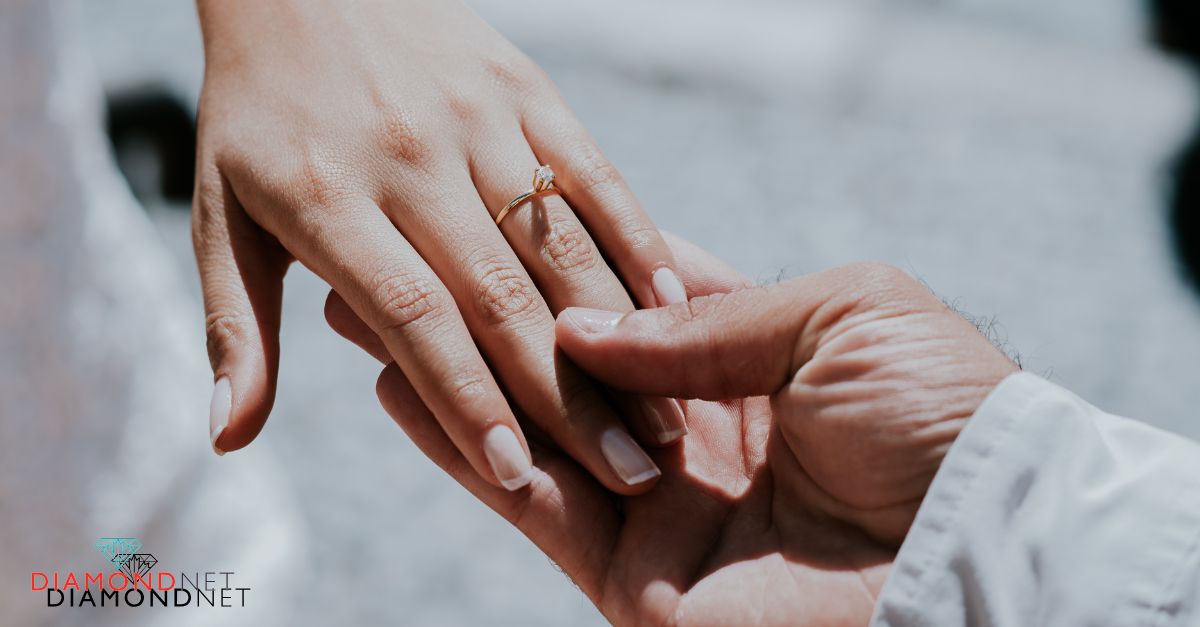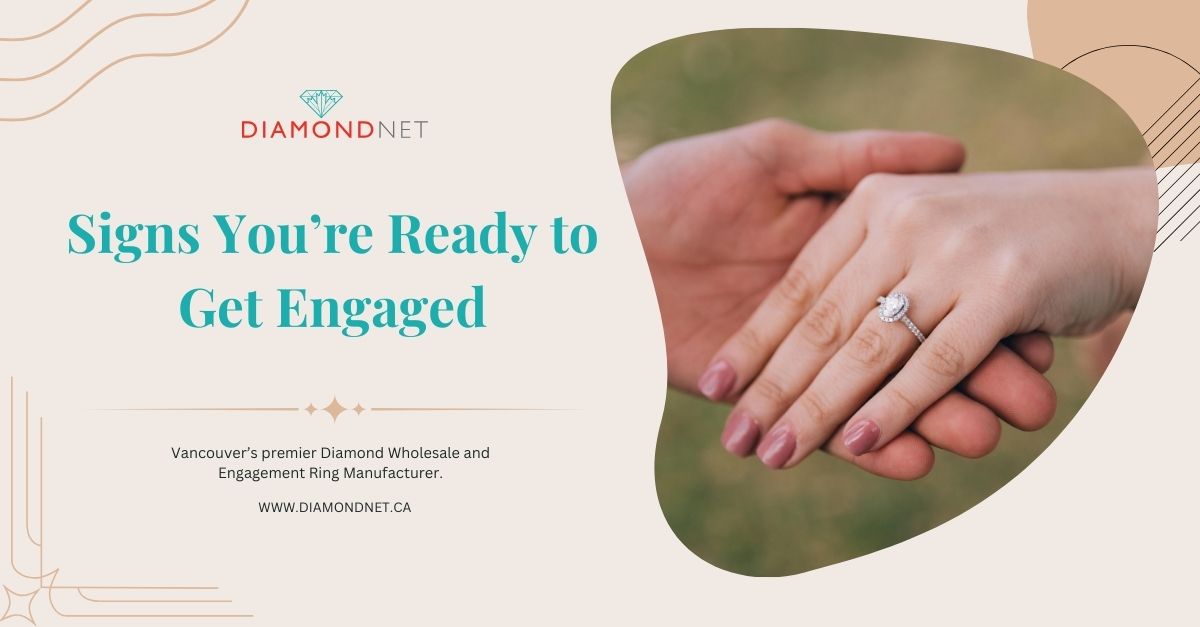Taking the next step in your relationship is exciting—but how do you know if you’re truly ready to get engaged?
Beyond the sparkle of the ring or the thrill of the proposal, engagement is a meaningful commitment. It takes more than just love. You also need emotional maturity, healthy communication, and alignment on life goals, finances, and values.
In this guide, you’ll explore the key signs you’re ready to get engaged. You’ll find expert-backed insights, practical tips, and reflection prompts to help you assess your relationship with clarity and confidence.
If you’re preparing to propose or feel the moment might be approaching, this guide will help you focus on what really counts—building a partnership that lasts long after the “yes.”

1. Emotional Readiness: Knowing Yourself Before Committing to Someone Else
Before you take the next step, take a step back. Are you truly ready for what engagement represents?
Emotional readiness isn’t just about loving your partner. It’s about knowing yourself—your motivations, your emotional patterns, and your ability to handle the ups and downs of a lifelong commitment.
Check Your Motivations First
Why do you want to get engaged?
Ask yourself if it comes from a place of genuine love and shared vision. Or is it driven by outside pressures—family expectations, age, or comparing your timeline to others?
Engagement should be a personal decision made with intention, not a response to social pressure or fear of missing out.
How You Manage Emotions Matters
Real readiness shows up in how you handle stress, disagreements, and emotional triggers.
Can you recognize and express your emotions without shutting down, lashing out, or blaming your partner? Couples who manage tough conversations with respect and emotional control are better prepared for marriage.
Are You Open to Growth and Vulnerability?
A healthy partnership requires both people to keep growing—together and as individuals.
Being ready means you’re open to feedback, willing to admit when you’re wrong, and brave enough to be vulnerable with your partner. If you embrace personal growth and support your partner’s growth too, you’re on the right path toward long-term success.

2. Communication Skills: Building a Foundation for a Lasting Partnership
Healthy communication is one of the clearest signs you’re ready to get engaged. It’s not just about daily check-ins or casual conversations—it’s about building trust through open, honest dialogue about your future.
Talking About the Future Without Fear
Can you openly discuss life plans—like career goals, family expectations, or where you want to live?
Couples who feel comfortable having these conversations show they trust each other. You don’t need to have all the answers, but you should feel safe exploring the big questions together.
Handling Disagreements in a Healthy Way
Disagreements are normal. How you handle them reveals your relationship’s strength.
Do you listen to understand, not just to reply? Can you stay focused on solving the issue, without turning it into a personal attack?
Couples who resolve conflict through teamwork, not blame, are showing real readiness for engagement.
Respecting Each Other’s Needs and Boundaries
Strong relationships allow space for individual needs—emotional, physical, and mental.
Can you clearly express what you need without guilt? More importantly, do you respect your partner’s needs just as much?
Communication isn’t about being perfect. It’s about showing up with honesty, listening with care, and working through challenges as a team. These are skills that will strengthen your relationship long after the engagement.

3. Shared Values and Goals: Aligning Your Vision for the Future
Love starts a relationship, but shared values sustain it over time. If you’re wondering how to know you’re ready for engagement, take a closer look at what you both believe in and where you see your future going.
Getting Clear on Life Goals
Do you both picture the same kind of future?
This might include decisions like where to live, career ambitions, or starting a family. If your long-term goals complement each other, you’re more likely to move forward with confidence.
Respecting Core Beliefs and Priorities
You don’t need to agree on every issue, but understanding each other’s core beliefs is essential.
This could include spiritual practices, family traditions, political values, or ethical priorities. The key is showing respect, even when your views don’t fully align.
Looking Beyond Today
Ask yourself: Can we support each other’s dreams, even when life gets complicated? Are we both committed to working toward a shared future?
When your values and goals feel aligned—not just today, but for the years ahead—you’re building a strong foundation for the next step.
4. Financial Compatibility: Building Trust Through Transparency
Money can be a sensitive topic, but it plays a big role in long-term relationship success. If you can have open, honest conversations about your financial habits, you’re already showing signs of engagement readiness.
Talking Openly About Money
Have you discussed your income, spending habits, debts, and savings goals with each other?
Couples who can talk about money without hiding details or feeling defensive build trust early on. Being financially open today helps prevent bigger problems down the road.
Finding Common Ground on Money Management
Do you both approach financial decisions with similar priorities?
You don’t have to agree on every dollar, but it helps if you respect each other’s values. Whether it’s saving for a home, planning your wedding, or investing in your future, being on the same page makes financial teamwork easier.
If you’re not sure how to get started, try sitting down together to map out your financial planning. Talk about short-term needs and long-term goals, and create a realistic budget that works for both of you.
Preparing for Shared Responsibilities
Getting engaged often means preparing to combine finances in some way—whether it’s opening a joint account, saving for shared goals, or managing household expenses together.
If you’re already comfortable planning and problem-solving as a team, you’re in a great position to build financial stability as a couple.

5. Support Systems: Building a Stronger Relationship With Community
Engagement doesn’t happen in isolation. Healthy couples often have people around them—family, friends, and mentors—who offer encouragement, perspective, and support.
Earning Respect From Each Other’s Circles
Do the people who matter to you respect your relationship?
While you don’t need everyone’s approval, it helps when your close circles support your commitment. Positive relationships with family and friends can reduce future stress and build a stronger foundation.
Making Efforts to Connect
Have you taken time to get to know each other’s family or friends?
Healthy relationships aren’t about shutting the world out. They grow stronger when both partners feel welcomed and included in each other’s lives.
Setting Boundaries With Outside Influence
At the same time, protecting your relationship from outside pressure is just as important.
Couples who can set healthy boundaries—especially with family expectations or unsolicited advice—are better equipped to prioritize each other in the long run.
6. Handling Adversity: Growing Stronger Through Life’s Challenges
Every couple faces hard times—whether it’s job stress, health issues, family tensions, or financial pressure. What matters is how you handle those moments together.
Staying Calm Under Pressure
When life gets tough, do you both work through challenges as a team?
Couples who can respond thoughtfully, instead of reacting with anger or withdrawal, show emotional strength. These are the moments that reveal how well you support each other under pressure.
Problem-Solving Together, Not Alone
Have you already faced difficult situations together?
Whether it was a move, a job change, or a family conflict, overcoming challenges side by side shows you’re ready for bigger life commitments. It proves you can face the unexpected—together.
Learning From Setbacks
Think back on the hard times you’ve shared. Did they bring you closer, or did they expose patterns that still need work?
Couples who reflect, learn, and grow after setbacks are better prepared for the realities of married life—not just the good times, but the hard ones too.

7. Cultural and Religious Considerations: Respecting Differences, Building Unity
When two people come from different cultural or religious backgrounds, engagement isn’t just a personal step—it’s also a blending of families, traditions, and beliefs.
Having Honest Conversations About Backgrounds
Have you talked openly about your cultural traditions, spiritual beliefs, or family expectations?
Understanding these differences early can help prevent misunderstandings later. It also creates room for both of you to feel heard and respected.
Finding Meaning in Your Differences
Different backgrounds can actually strengthen your relationship. They add richness to your shared story—if you approach them with curiosity and respect.
Couples who celebrate each other’s traditions—like holidays, food, or family customs—build deeper connection and understanding.
Aligning on Key Life Practices
Have you discussed how you’ll approach major life events, such as weddings, raising children, or observing traditions?
Finding common ground—or agreeing on how to honour both backgrounds—shows you’re ready to build a life that reflects both of your identities.
8. Desire for Marriage vs. Wedding: Focusing on What Truly Matters
It’s easy to get caught up in the excitement of rings, venues, and celebrations. But being ready to get engaged goes deeper than planning a perfect event. It’s about preparing for the marriage that follows.
Looking Past the Big Day
Are you more excited about the wedding or the life you’ll build together after it?
A wedding lasts a day. A marriage lasts a lifetime. If your focus is on the partnership—not just the party—you’re on the right path.
Seeing the Bigger Picture
Do you picture growing with your partner through life’s changes—career shifts, family decisions, personal growth?
Engagement is about committing to that long-term journey, knowing it won’t always be easy, but choosing each other anyway.

Making the Decision for the Right Reasons
Take a moment to reflect. Are you moving forward because you’re truly ready, or are you feeling pressure from family, friends, or social expectations?
Real readiness comes from within. It’s about knowing you’ve done the personal work, had the right conversations, and built a foundation you trust.
Conclusion: Clarity Before Commitment
Getting engaged is more than a milestone—it’s a personal decision rooted in emotional readiness, shared values, and long-term vision.
By reflecting on the key signs we’ve explored—emotional maturity, communication, shared goals, financial compatibility, support systems, handling challenges, cultural respect, and true motivation—you’ll be better prepared to decide if engagement feels right for you and your partner.
When the moment comes, make it meaningful with a custom engagement ring that tells your story. At DiamondNet, we help you create a ring as unique as your relationship—crafted with care and designed just for you.
We also offer free consultations to help you explore ring options, plan your proposal, and learn more about what comes after the “yes.” Visit our blog for expert insights on love, commitment, and meaningful jewellery choices.
Let your next chapter begin with clarity, confidence, and a ring that feels just right.



